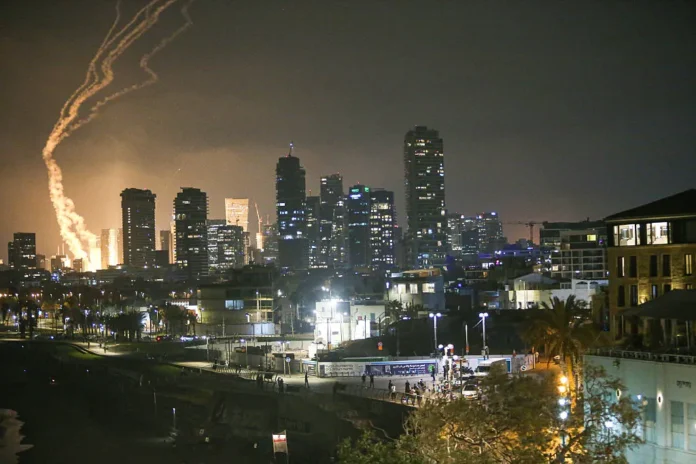By: Isuru Parakrama
June 15, World (LNW): A renewed exchange of hostilities between Iran and Israel has plunged the Middle East into heightened uncertainty, with both nations carrying out strikes against one another overnight, in a bid to escalate a conflict that now threatens to draw in wider regional and international actors.
The latest flare-up comes in the wake of an Israeli airstrike on Iran’s prized South Pars gas field—the largest of its kind globally—prompting Tehran to halt a portion of production after fire damage was reported. This marked a shift in Israel’s targeting strategy, which had previously spared key energy infrastructure.
Tehran, angered by what it has labelled acts of aggression, responded by scrapping scheduled nuclear negotiations in Oman. The talks, previously touted by the United States as a last diplomatic path to halt the growing confrontation, were abruptly cancelled by Iranian officials, who cited the futility of dialogue under bombardment.
Meanwhile, Israeli Prime Minister Benjamin Netanyahu warned that the current attacks were merely a prelude to more forceful action, suggesting that Iran had yet to witness the full extent of Israel’s retaliatory capacity. As of Sunday morning, Israeli authorities confirmed renewed missile launches from Iran, whilst Israel intensified its military response by striking multiple targets in and around Tehran, including an oil refinery and a facility affiliated with the defence ministry.
In a chilling turn, air-raid sirens rang out across major Israeli cities including Tel Aviv and Jerusalem, as residents sought shelter amid the barrage. Footage showed interceptor systems firing overhead, whilst explosions echoed in densely populated areas. In the northern town of Tamra, a missile strike near a residential property resulted in the deaths of three women and injuries to several others, according to emergency services.
Iran’s elite Revolutionary Guards claimed responsibility for a coordinated attack targeting Israeli energy installations and jet fuel production infrastructure. The force issued a stern warning, pledging more expansive and destructive action should hostilities persist.
The humanitarian toll has deepened alarm. Iranian authorities have reported over 130 fatalities since the campaign began, including dozens of civilians killed when a high-rise building in Tehran collapsed following a missile strike. Amongst the dead were 29 children, Iranian state media confirmed. Israel, too, has suffered casualties, with several deaths attributed to Iranian strikes on Friday night.
The strategic implications are dire. A senior Iranian military official hinted at Tehran’s potential consideration of closing the Strait of Hormuz, a critical chokepoint for global oil shipments. Oil prices had already surged by nearly 9% last week amid fears of disrupted exports.
Complicating the crisis is the precarious state of Iran’s regional allies. With Hamas in Gaza and Hezbollah in Lebanon weakened by successive conflicts, Tehran’s usual channels for asymmetric response are currently impaired. Nonetheless, Iranian officials have warned that any attempt by foreign militaries to intercept its missile volleys will prompt attacks on their bases within the region.
Washington, which has traditionally been Israel’s staunchest backer, issued a muted statement through former President Donald Trump, urging Iran to de-escalate but warning of harsher consequences if it continued on its present course. Trump stopped short of pledging direct intervention, reflecting Washington’s cautious posture amid a rapidly evolving crisis.
Human rights observers in Israel, including B’Tselem, criticised the government’s approach, accusing it of bypassing diplomatic options and igniting a war that now endangers millions. Activists have urged both sides to resume dialogue and prioritise humanitarian considerations over strategic escalation.

